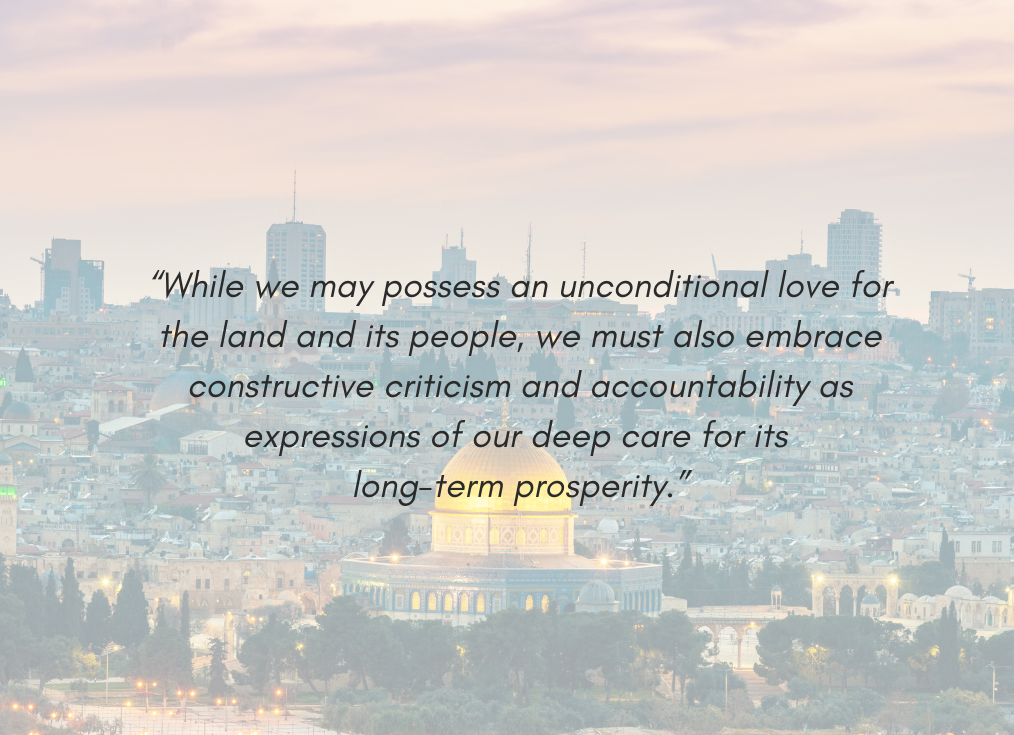Criticism Rooted in Unconditional Caring

May 31, 2024 | Iyar 23, 5784
In the opening verses of this week’s Torah portion, Behukotai, we read in Leviticus 26:3, “If you follow My statutes and observe My commandments and perform them… [I, Gd, will reward you].” This and the ensuing verses seem to present a conditional love, where Gd’s blessings and rewards are contingent upon our adherence to Gd’s commandments. However, a deeper reading reveals that this system of reward and punishment is rooted in unconditional love, akin to a parent’s love for their child.
Just as a parent loves their child unconditionally, they also provide guidance, boundaries, and consequences to shape their child’s behavior and character. A parent’s love is not diminished by setting rules or disciplining their child when they misbehave; rather, it is an expression of their deep care and commitment to their child’s long-term well-being.
To paraphrase the great Rabbi Abraham Isaac Kook z”l, the essence of true love lies in the unconditional acceptance of the beloved, even when they stray from the path of righteousness. Rabbi Kook highlights that unconditional love does not negate the need for guidance and accountability but rather embraces it as an essential aspect of nurturing growth and personal development.
…
This concept can be illuminated further through the rabbinic parable of the father who had a precious diamond, which he entrusted to his young child. The child, unaware of the diamond’s value, played carelessly and lost the gemstone in the garden. The father, saddened by the loss, sent the child to search for the diamond, promising a reward if it was found. The child, motivated by the promise of a reward, diligently searched until the precious diamond was found. The father’s love for his child remained constant, but his guidance and incentive helped the child learn a valuable lesson and regain what was lost.
Similarly, Gd’s commandments and statutes are not arbitrary rules but a roadmap for our spiritual growth and collective well-being. The consequences are not punitive but rather opportunities for course correction and personal growth.
This understanding can be extended to our love for Israel, our homeland. While we may possess an unconditional love for the land and its people, we must also embrace constructive criticism and accountability as expressions of our deep care for its long-term prosperity. Criticism and accountability are not oppositional to love; rather, they are essential components of nurturing a healthy and just society.
BUT, just as a wise parent chooses to admonish a child who errs in private, so too must our criticism of Israel be handled with similar care. Our public stance should convey an unwavering love and support for our homeland while any needed critique need be expressed within the family behind closed doors. This approach ensures that our criticism is not misconstrued as a lack of love or commitment to Israel’s core value, rather it reinforces our long-term desires for a homeland that shines as a guiding light of ethical and moral clarity.
As we strive to uphold the commandments and follow Gd’s statutes, let us remember that the ultimate goal is not merely to achieve short-term rewards but to cultivate a deep and enduring relationship with our Creator and our homeland. The system of reward and punishment highlighted in this week’s Torah portion is not a transactional arrangement but a manifestation of Gd’s unconditional love, guiding us towards personal and collective growth, just as a parent lovingly guides their child towards becoming their best self. Because we are…
Shabbat Shalom.

